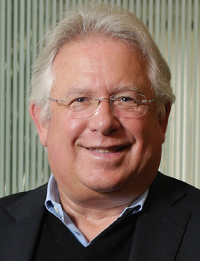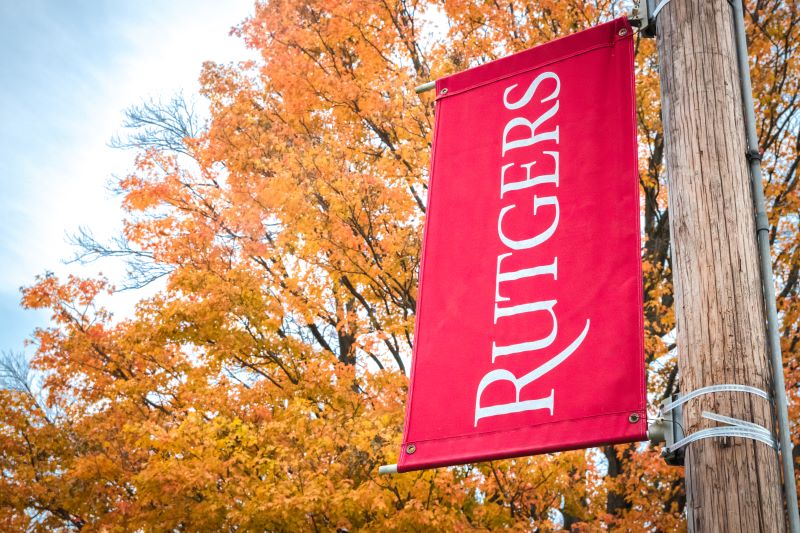By Joshua Burd
It’s been a decade since the Rutgers Center for Real Estate launched in earnest, providing a chance for the 3,500 students that have taken a real estate class in that time to become immersed in development, financing and other aspects of the commercial property sector.
Some of them have come a long way.
“When I talk to students initially, they think ‘real estate’ is Weichert homes,” said Ron Ladell, a founding member and now chair of the center’s executive committee. “They think you’re selling homes.”
Funny as it may sound, Ladell said it’s often a real misconception. And it highlights the need for the center and the void it has filled with respect to not only educating students on the commercial real estate industry but preparing them for careers in the field with the help of some of New Jersey’s most accomplished executives and service providers.

“We provide exposure to an industry and industry professionals that you can’t get without this program,” said Ladell, a longtime multifamily developer and senior vice president with AvalonBay Communities Inc. “We can tell students and show students — by experiences and discussions — what it’s like to be in this industry. And that’s what we do.”
He and the center’s other leaders are now taking stock of the program and celebrating its growth as they mark the 10th anniversary of its official launch. Its offerings now include eight courses across Rutgers’ Newark and New Brunswick campuses, which have been taken by thousands of undergraduates since enrollment began in 2015. The program also counts nearly 330 alumni that obtained the undergraduate concentration in real estate, while it has provided nearly $2.3 million in scholarships to 373 students during that time.
That’s not to mention the eight conferences held and nearly 100 blog posts or white papers written by the Center for Real Estate staff, all with the support of an executive committee, advisory board and other top professionals that help build its curriculum, mentor students and provide other means of guidance and financial support. They’re among the leaders that are looking ahead to what comes next for the program, part of the Rutgers Business School, from building a full-fledged alumni network to endowing the center at multiple levels.
They also hope to achieve the long-held goal of establishing a real estate major at Rutgers.
“Whether you give money, whether you teach, whether you show up at events, I think everyone that’s involved in the Rutgers Center is doing it because they want to give back to the next generation of real estate executives and leaders,” Ladell said. “That’s what it’s about. And I think … we’ve gotten somewhat institutionalized. People know who we are now.”
The center became a reality following a donation in early 2013 by Paul V. Profeta, the owner and president of Paul V. Profeta and Associates Inc. and the publisher of Real Estate NJ, who gifted $1.5 million to establish a chair in real estate. An anonymous donor matched those funds to create $3 million in seed money for the program and pave the way for the hiring of Morris Davis, its academic director and the Paul V. Profeta chair of Real Estate at Rutgers Business School, who joined in 2014 after leading the University of Wisconsin’s James A. Graaskamp Center for Real Estate.
By 2015, the center unveiled a star-studded roster of industry leaders that made up its first advisory board, a group that was led by a small but influential executive committee.

“As one of the founding chairs of the Rutgers Center for Real Estate, I am proud to witness the Center’s remarkable growth and its meaningful contributions to the commercial real estate industry,” said Carl Goldberg, a principal with Canoe Brook Development, who co-chaired the first executive committee alongside The Hampshire Cos. CEO and President James E. Hanson II. “From preparing the next generation of real estate leaders, to fostering collaboration among industry professionals, to producing research that directly benefits companies in the field, the Center continues to advance the industry in impactful ways.”
It also hosted its first conference and launched its first courses, many of them taught by advisory board members that continue to do so as adjunct professors.
“All of the professors try to provide as much practical experience that we can,” Ladell said, from interview training to resume writing, which are bolstered by case studies and guest lectures by top builders that have become a fixture in his real estate law and real estate development courses.
“I think we measure our success by the fact that our students got exposed to real estate at an early age,” he added. “Even if they go somewhere else — they could do tech or supply chain logistics, whatever it might be — they’re still, I believe, using that real estate background and analytics.”
The center also continues to add corporate sponsors that provide critical financial support as well as a pipeline to potential job opportunities. They include Walker & Dunlop, Sills Cummis & Gross PC, Dynamic Engineering PC and, most recently, EisnerAmper, which are among the many real estate firms or service providers that have hired Rutgers Center for Real Estate alumni.
Expanding that support is a key goal for the future, one that includes securing an endowment for the overall Rutgers Center for Real Estate and smaller endowments to support professorships and students’ participation in multi-university real estate case study competitions.
“If you want to give back, that’s one way to give back,” Ladell said.
It’s also crucial for the center to develop an alumni network that “organically supports alums for job opportunities and social environments,” he said, noting that the Newark and New Brunswick campuses both have the early makings of such an organization. Both locations are also home to student real estate clubs that provide guest speakers and networking opportunities.
“Hopefully we continue to promote ourselves both externally and internally,” Ladell said, later adding: “For this to be sustainable, it needs to happen organically. We need people that graduate in the last three, five, seven years to say, ‘At some point, it’s my time to give back.’”
Rutgers real estate program eyes new degrees, new investment as it looks to the future









